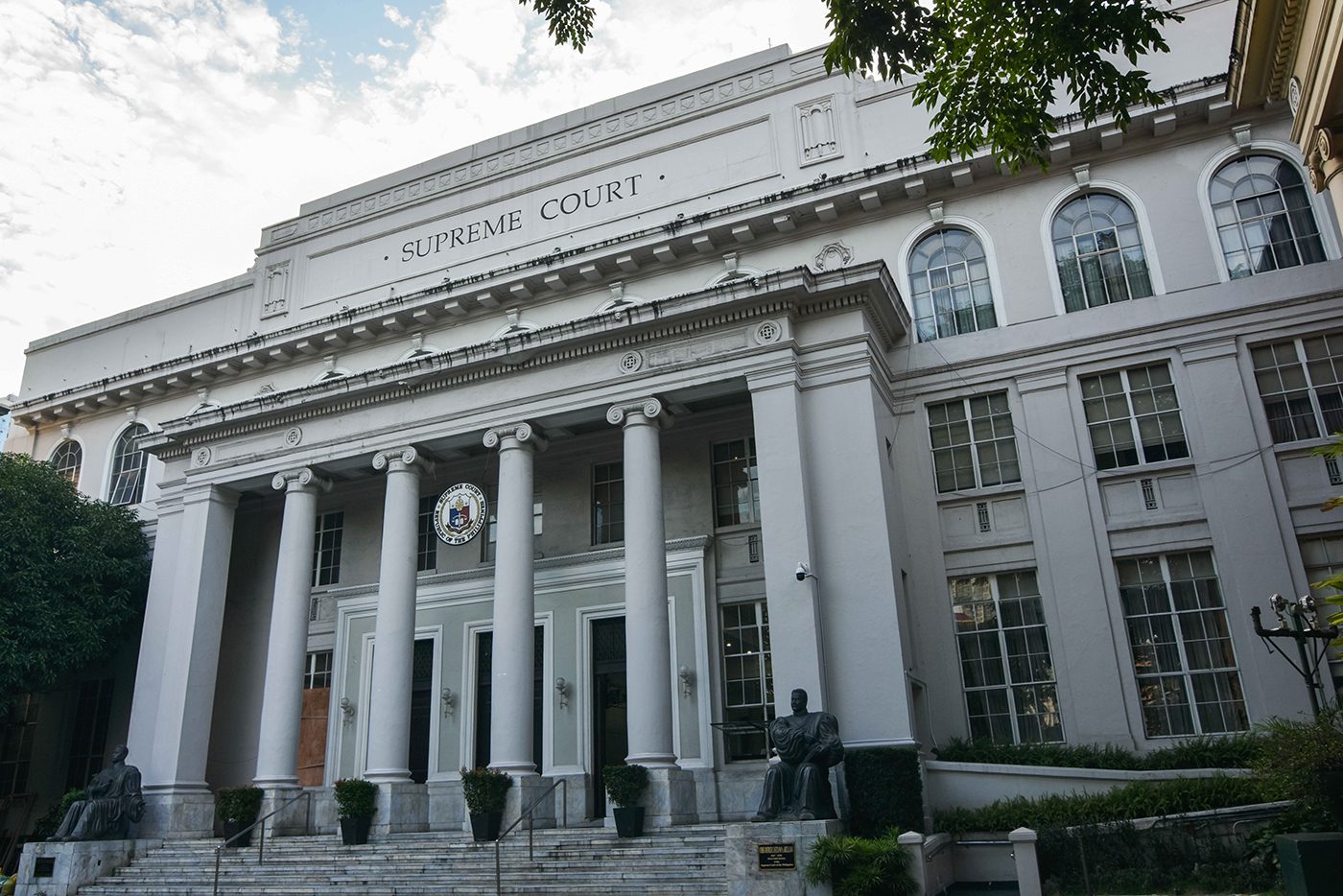SUMMARY
This is AI generated summarization, which may have errors. For context, always refer to the full article.

MANILA, Philippines – The Supreme Court (SC) backed the dismissal of a graft complaint against former officers of the Development Bank of the Philippines (DBP) and a textile company over supposed behest loans during the administration of former President Ferdinand Marcos.
The SC Third Division, in its 19-page decision, affirmed a 2006 resolution and a 2011 order of the Office of the Ombudsman that found no probable cause to charge the ex-officials of DBP and ALFA Integrated Textile Mills Inc of violating Sections 3(e) and (g) of the Anti-Graft and Corrupt Practices Act, as alleged by the Presidential Commission on Good Government (PCGG) in its complaint.
Associate Justice Marvic Leonen penned the SC decision.
The PCGG contended that the 6 loans by ALFA Integrated Textile Mills from 1979 to 1981 – amounting to P634.8 million – were behest loans, because these were “secured by inadequate collaterals” and were “extended” despite the company’s losses. In addition, the PCGG argued that using the loan proceeds to pay off existing obligations rather than investing “denied DBP the opportunity to recover from the loans.”
The PCGG also said that a rehabilitation plan recommended by DBP and the sale of the firm’s fixed assets to a Marcos crony were grossly disadvantageous to the government.
Named as respondents in PCGG’s complaint are ex-DBP officials Cesar Zalamea, Rafael Sison, Alicia Reyes, J.V. De Ocampo, Joseph Edralin, and Rodolfo Manalo, as well as former ALFA Integrated Textile Mills officers Ramon Lee, Johnny Teng, Antonio Lacdao, and Cesar Marcelo.
The Ombudsman said in its rulings that the loans to ALFA Integrated Textile Mills were not behest loans. It also ruled that the PCGG was unable to prove its allegations.
The agency added that DBP’s acts were done “in the exercise of the bank officials’ sound business judgment.”
The SC Third Division sided with the Ombudsman.
It affirmed the Ombudsman’s finding that the collaterals were sufficient to secure the loans. It also seconded the Ombudsman in saying that DBP’s rehabilitation plan in the complaint “would not be disadvantageous to the government” since its terms did not violate the law, and the government “actually benefited” from it.
The SC added the PCGG failed to prove that the sale of the textile company’s fixed assets, amounting to P462.323 million, to Cape Industries Inc for only P100 million was likewise grossly disadvantageous.
Cape Industries Inc was owned by Eduardo “Danding” Cojuangco Jr, a crony of President Marcos.
In addition, the SC affirmed the Ombudsman’s findings that the DBP included in the contract for the fixed assets sale a repayment schedule of ALFA Integrated Textile Mills’ loans and other obligations.
The SC Third Division said that the PCGG “failed to show how the risk Development Bank had taken in extending the loans to ALFA Integrated Textile was arbitrary or malicious. Likewise, it was unable to prove the element of undue injury; that is, the losses that would have been unavoidable in the ordinary course of business, as contemplated by [the] Presidential Commission on Good Government.” – Rappler.com
Add a comment
How does this make you feel?
There are no comments yet. Add your comment to start the conversation.